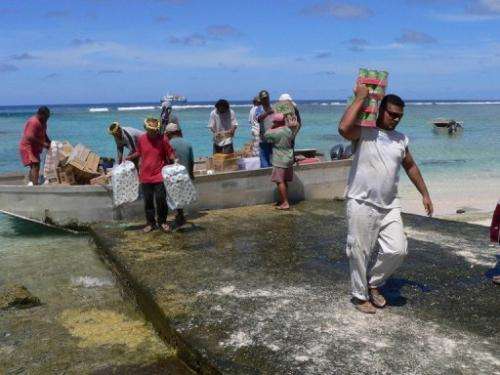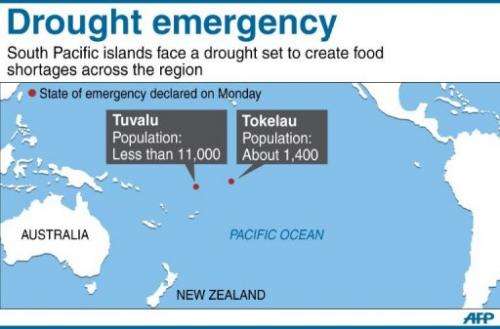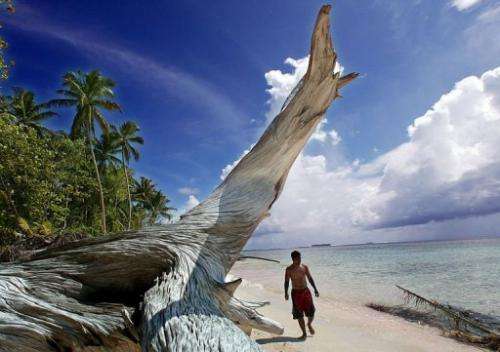Second Pacific island declares drought emergency

A second South Pacific community has declared a state of emergency in a drought crisis that has seen water rationing imposed in parts of the region, officials in Wellington said Tuesday.
Tokelau, a New Zealand-administered territory of about 1,400 people, has less than a week's drinking water after a long drought blamed on a La Nina weather pattern, Foreign Minister Murray McCully said.
McCully said Tokelau declared a state of emergency late Monday, following a similar move in neighbouring Tuvalu, which has a population of fewer than 11,000 and where water is already being rationed in places.
A New Zealand air force plane landed in Tuvalu on Monday carrying containers of water and desalination units.
"There's been a state of emergency declared in Tokelau as well, where there are three islands, (they are) New Zealand citizens and they're down to less than a week's drinking water there too," he told Radio New Zealand.

Tuvalu, one of the world's smallest independent nations, lies about halfway between Australia and Hawaii. Tokelau is is about 500 kilometres (310 miles) to the east.
McCully said other islands in the South Pacific were also reporting water shortages and New Zealand was rushing to assess the situation throughout the region amid fears the crisis could escalate.
New Zealand was "making sure we deal with the drinking water issue most urgently," he said.
He said the situation was urgent in parts of Tuvalu. "There's less than a week's supply of drinking water on Funafuti, that's the main island in Tuvalu," he said.
"I understand one of the other outlying islands, Nukulaelae, has a more urgent shortage and there is a desalination plant on the way there.
"There are going to be some flow-on effects here, clearly this is having a severe impact on crops, so there's likely to be a food shortage as well."
McCully said New Zealand, a major aid donor in the Pacific, "may yet be called upon to help in some other places". He did not specify where.
A Red Cross situation report on Tuvalu released last week said the former British colony relied mostly on rainwater, which has been scarce this year because of the La Nina weather pattern.

La Nina causes extreme weather, including both drought and floods, and was blamed for deluges and floods in Australia, Southeast Asia and South America over late 2010 and early 2011.
David Hebblethwaite, a water conservation expert with the Secretariat of the Pacific Community (SPC), said Tuvalu had experienced low rainfall for the past three years and there had been no precipitation at all for seven months.
He said Funafuti and Nukulaelae both lacked groundwater supplies, making them dependent on rainfall collected from the roofs of homes and government buildings.
"At the moment those communities are on rations, fairly low rations, and just hoping that it rains sometime soon," he told Radio Australia.
Hebblethwaite said the islands may also need extra medical supplies if water shortages lead to sanitation issues and consequent health problems.
(c) 2011 AFP


















